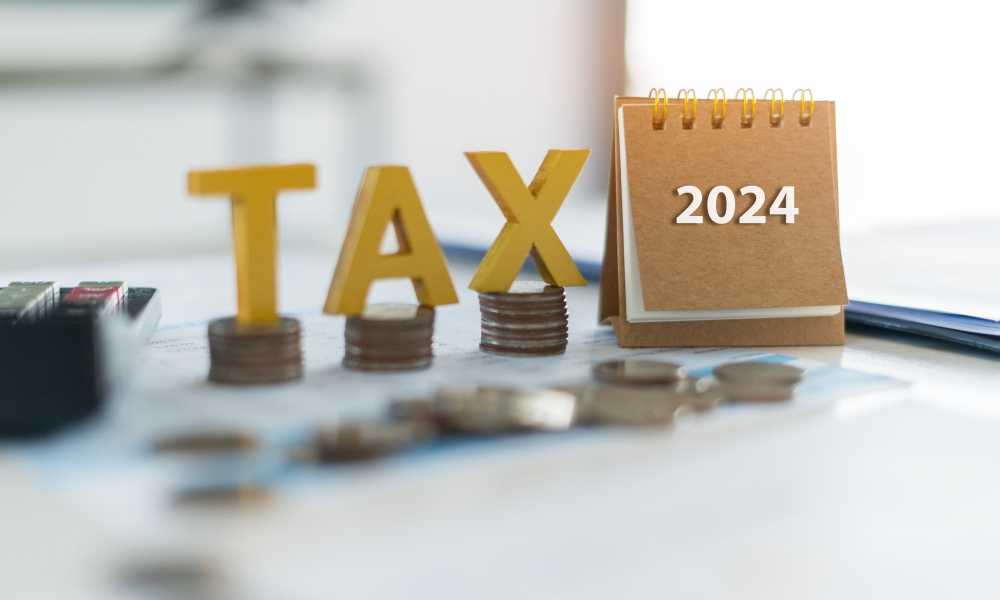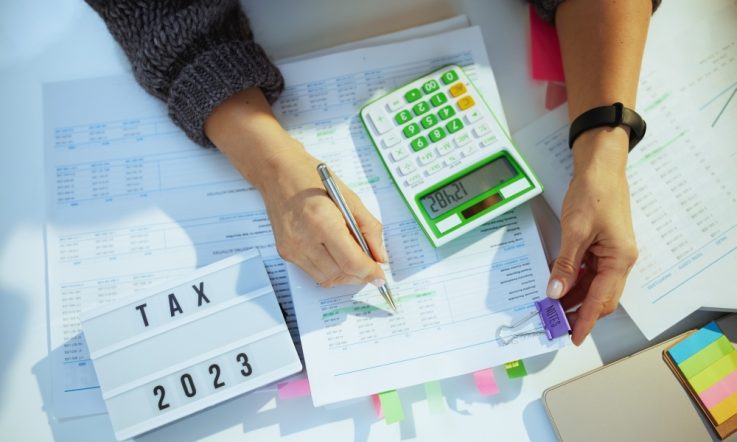We're heading into tax time here in Australia, so to make your taxes a little less taxing this year, we spoke to Mark Chapman, Director of Tax Communications at H&R Block.
In this Q&A, we discuss everything teachers in Australia should know about tax time 2024 – from what you could be claiming for, to some common mistakes you might be making.
Hi Mark. Today we’re talking about tax time. Can you run through some of the basics for us?
Yeah, basically you can lodge a tax return anytime from the 1st of July onwards. [Although] it’s generally worthwhile waiting for a couple of weeks to lodge because the Australian Taxation Office (ATO) isn’t actually processing returns early in July.
[Teachers] can either lodge the tax return themselves, using MyTax, or they can use a tax agent to lodge for them. They simply need to gather together all their documentation – [such as] details of their income, substantiation of their expenses – and take it to the tax agent.
Before teachers go start on their taxes, are there some golden rules they should follow?
There are, really, 3 specific rules.
So, first of all, the individual does need to make sure the deductions are actually work-related expenses.
Secondly, they need to make sure they haven’t been reimbursed for those expenses during the course of the year – so if their employer has paid them back, they can’t claim a deduction.
And thirdly, they do need to make sure they can substantiate all the expenses. You need to have a receipt or an invoice, for example (expenses of less than $10 each don’t need substantiation provided those small expenses don’t total more than $200).
Aside from the usual lesson supplies and stationery that teachers often spend their own money on, what are some things they could potentially be claiming a deduction on?
There are lots of things.
Self-education [for example] – if they’ve taken a course which is designed to assist them in their current job then they can claim a tax deduction for the cost of the course.
They can claim working from home expenses for marking or preparing lessons – if they’re doing that from home. This could either be on an actual basis or they can simply claim the ATO’s fixed rate, which is $0.67 per hour. They do need to have kept a record of all their hours of work over the course of the year.
They can also claim a deduction on the work-related proportion of any [personal costs incurred] for excursions, school trips, or camps they’ve been obliged to go on. First aid courses, seminars, and conferences [as well].
Even protective equipment such as sunglasses or sunhats may be a claimable expense - the ATO has extra information on this and other deductions for education professionals on its website.
Any technical or professional publications, union and professional association fees, that’s all claimable.
Anything they can’t claim for?
They can't claim a deduction if [any] study is only related in a general way or designed to help the teacher get a new job.
[Also] the costs of trips between home and work. So that's the case even if they live a long way from their usual workplace, or they have to work outside normal business hours, such as parent-teacher interviews, that won't be deductible. The costs of childcare, even if the reason for that childcare might be that they need it in order to go to work, that’s not deductable. Plus fines and penalties, even if they were incurred on work time, such as a parking ticket or a speeding fine.
What are some mistakes you see teachers making when doing their taxes?
They can’t claim for things they aren’t entitled to, and they also can’t claim excessive amounts for things that they are entitled to. It’s very important teachers look at their deductions [carefully] … The ATO has a real focus on work-related expenses. There’s a good chance they will be found out if they’re embellishing claims.
Also … if they intend to lodge early in the tax year, they shouldn’t rely on the prefilled data from the ATO. The prefilled data is information which … is provided to [the ATO] by the teacher’s employers and also the banks and building societies [for example], so it’s third-party information. Particularly early on in the tax season, the ATO will not have a lot of that information [yet], so there’ll be some gaps. So, it’s important teachers use their own source documents.
In addition, there’s, you know, the fairly basic information – it is essential teachers get it right. So, if their name or address has changed, they need to tell the ATO before they actually lodge their tax return, [otherwise] the ATO won't be able to match it with the tax file number, which then leads to delays in processing and delays in issuing the appropriate refund.
[Even things like] they shouldn’t be making spelling mistakes.
Even teachers need to be checking their spelling!
Yeah! It's very easy to just make a little spelling mistake. An extra letter to a field such as the name or address on the tax return could lead to the tax return going into something of a black hole whilst the ATO tries to manually match your details.
When do teachers need to have all their taxes done by for the year?
The 31st of October is the deadline for lodging a tax return themselves using MyTax.
There’s an extension for accountants, which potentially runs right through until the 15th of May, [but teachers] need to make sure they’ve registered with a tax agent by the 31st of October in order to access those additional months on the deadline.
[After that date you can] still claim, but the tax return will be late
If you’re due a refund [on that late application] there won’t really be any penalties. However, if they have debt to the tax office that will trigger late lodgement penalties, which is currently $313 for each 28-day period that the return is lodged late.
For more information on income and work-related deductions for teachers and education professionals, visit ato.gov.au/teacher



